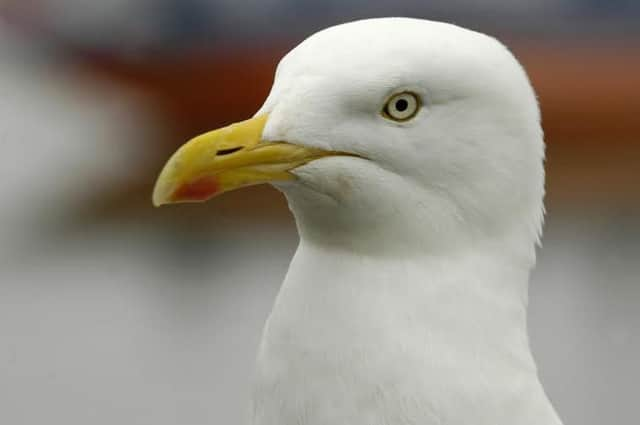People in Northampton warned not to feed growing population of '˜urban gulls' in the town


A number of people have taken to social media in recent weeks to complain about the growing number of “noisy” gulls, particularly in the Sixfields and Duston areas of town.
Tony Whitehead, spokesman for the RSPB, said: “Gulls should never be fed either intentionally or unintentionally, particularly in your garden. They are expert scavengers.
Advertisement
Hide AdAdvertisement
Hide Ad“Feeding them or discarding food reinforces their belief that all humans provide an ‘easy food source’ and reduces their natural wariness of humans.
“How is a gull supposed to distinguish between food offered or intentionally discarded and someone enjoying their own lunch with no thought (or intention) of sharing it?
“Some gulls are so skilled that the unexpected theft happens with such stealth that Oliver Twist’s Fagin would have been impressed. Others seem to resort to schoolboy bullying so don’t bother with stealth and may accidently knock you.”
Mr Whitehead said gulls are very protective of their young and have an issue with “personal space.”
Advertisement
Hide AdAdvertisement
Hide AdHe said: “Young gulls often have trouble mastering the art of flying.
“They have to practise and many get it horribly wrong and land on the ground or get themselves trapped or injured. This is when the parent gull swings into full protective mode.
“If the gull believes you are too close to its youngster and therefore could easily harm it, it will fly over you at great speed - alarmingly close but rarely making contact the first time.
“This is akin to a ‘warning shot over the bows’. They are large birds and this often seems like a full blown attack. It is meant to frighten and warn you off. If that doesn’t work, the gull will then let you know it means business. They are big, bulky birds so the impact is not easily forgotten. If you have an anxious gull parent to contend with, the best advice is to walk with an umbrella up.”
Advertisement
Hide AdAdvertisement
Hide AdThe RSPB has released a list of advice for local authorities and individuals in urban areas to help reduce the number of gulls, including:
reducing the amount of food waste sent to landfill
not putting rubbish out until the day of collection
putting food waste out in gull-proof containers
reducing the amount of `edible litter’ on streets, particularly arising from fast food outlets
providing `gull-proof’ public litter bins
strongly discouraging people feeding gulls